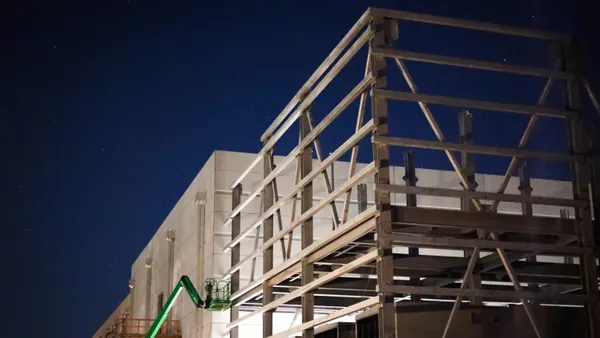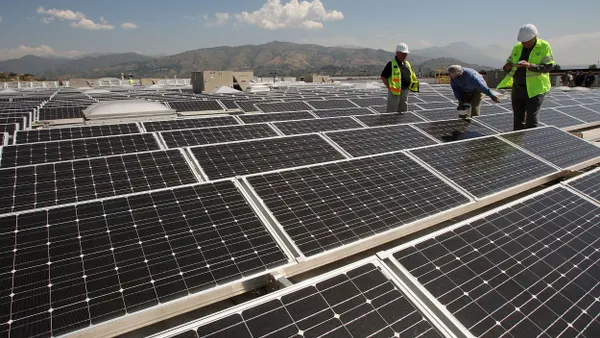Dive Brief:
- The city of Boulder, Colorado, on Nov. 20 made a $94 million "final offer" for the Xcel Energy assets necessary to create a municipal utility, in hopes of avoiding a condemnation proceeding.
- The city says the assets, aside from substations, have been appraised at $62.3 million. The offer does not include Xcel's substations, but would cover more than 100,000 "items" on the distribution system used to deliver electricity to Boulder residents, including electric poles, underground and overhead transformers, primary circuits, feeders and other equipment.
- Boulder has made two previous offers for Xcel's assets, but the utility did not respond to either. In a statement, Xcel said it is evaluating the most recent offer.
Dive Insight:
Boulder's efforts to create a municipal utility have been going for almost a decade now, slowly progressing through the courts, the Colorado Public Utilities Commission and the ballot box. Regardless of the most-recent offer and Xcel's response, a final go/no-go vote is expected in 2021.
But Boulder's most recent offer comes after an October PUC decision approved transfer of Xcel assets to the city, excluding substations. "We've made an offer that we hope Xcel will seriously consider," Boulder attorney Tom Carr said in a statement.
Boulder has made two previous offers for Xcel assets. An initial offer of $68.5 million was based on the appraisal including assets inside substations. In June, the city increased its offer to $82 million.
The new offer is double the original cost of the assets, say city officials, less depreciation. Xcel says it has not yet made any decisions.
"This is a complex process and it's important for Xcel Energy to understand the information the city has shared," Xcel spokesperson Michelle Aguayo said in a statement.
Boulder officials say their new offer is the first step in the city's acquisition process, which they expect to continue throughout 2020. In a statement, the city said that if Xcel rejects the offer then it "will proceed to re-file condemnation in District Court before the end of the year."
A previous move to condemn Xcel's assets was filed with the court in June, but then dismissed in September because the PUC process was not complete. The commission's final order authorizing transfer of assets was issued Oct. 28.
Under the condemnation process, a "valuation trial" could be held in nine to 15 months to determine this cost of the assets, said Boulder officials. However, the city cannot take ownership unless voters give final approval to creation of the utility after dollar amounts and other variables have been finalized.
Boulder began its municipalization process in an effort to bring more clean energy onto its system. Xcel officials say they are now on a path to achieve 100% carbon-free electricity by 2050, which "aligns with Boulder's clean energy priorities and we look forward to working with them to achieve that vision," said Aguayo.
The city wants to reach 100% renewables by 2030.














